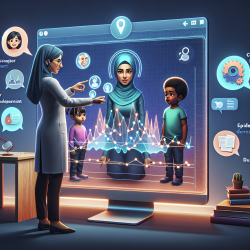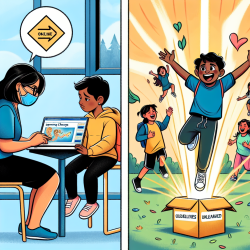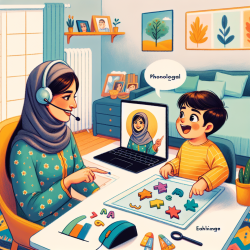In the field of speech-language pathology, creating optimal outcomes for children is a priority that requires continuous adaptation and integration of the latest research findings. One significant contribution to our understanding of intelligence and its implications for practice is the research article titled "Contextualizing Positionality, Intersectionality, and Intelligence in the Anthropocene." This article challenges traditional definitions of intelligence and advocates for a more inclusive and intersectional approach.
Understanding Intelligence in the Anthropocene
The Anthropocene, a term denoting the current geological epoch where human activity has significantly impacted the planet, demands a reevaluation of what constitutes intelligence. Traditional measures of intelligence, often rooted in Western-centric and standardized testing, fail to capture the diverse cognitive abilities required to navigate complex societal and environmental challenges.
According to the research by Suzuki et al. (2024), intelligence should be viewed through an intersectional lens, considering how various identities—such as race, ethnicity, socioeconomic status, gender diversity, and neurodiversity—affect access to resources and opportunities. This perspective is crucial for speech-language pathologists working with children from diverse backgrounds.
Implications for Speech-Language Pathology Practice
To enhance practice, speech-language pathologists should consider the following recommendations derived from the research:
- Adopt an Intersectional Approach: Recognize that children’s cognitive and linguistic abilities are influenced by their intersecting identities. Tailor assessments and interventions to reflect these complexities.
- Use Culturally Responsive Assessments: Traditional standardized tests may not adequately capture the intelligence of children from diverse backgrounds. Incorporate culturally relevant materials and alternative assessment methods.
- Promote Equity and Inclusion: Advocate for policies and practices that address systemic inequities in education and healthcare. Ensure that all children have access to high-quality speech-language services.
- Foster Adaptive Skills: Focus on developing children’s adaptive and practical intelligence, which are crucial for navigating real-world challenges. Encourage problem-solving, creativity, and emotional intelligence.
Encouraging Further Research
While this research provides valuable insights, there is a need for further studies to explore the intersection of intelligence and speech-language pathology more deeply. Practitioners are encouraged to engage in and support research that examines how diverse identities impact speech and language development.
By integrating these research findings into practice, speech-language pathologists can contribute to more equitable and effective outcomes for all children. To read the original research paper, please follow this link: Contextualizing Positionality, Intersectionality, and Intelligence in the Anthropocene.










